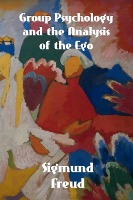Group Psychology and The Analysis of The Ego is a great psychology book by Sigmund Freud.The contrast between Individual Psychology and Social or Group Psychology, which at a first glance may seem to be full of significance, loses a great deal of its sharpness when it is examined more closely. It is true that Individual Psychology is concerned with the individual man and explores the paths by which he seeks to find satisfaction for his instincts; but only rarely and under certain exceptional conditions is Individual Psychology in a position to disregard the relations of this individual to others. In the individual's mental life someone else is invariably involved, as a model, as an object, as a helper, as an opponent, and so from the very first Individual Psychology is at the same time Social Psychology as well--in this extended but entirely justifiable sense of the words.The relations of an individual to his parents and to his brothers and sisters, to the object of his love, and to his physician--in fact all the relations which have hitherto been the chief subject of psycho-analytic research--may claim to be considered as social phenomena; and in this respect they may be contrasted with certain other processes, described by us as 'narcissistic', in which the satisfaction of the instincts is partially or totally withdrawn from the influence of other people. The contrast between social and narcissistic--Bleuler would perhaps call them 'autistic'--mental acts therefore falls wholly within the domain of Individual Psychology, and is not well calculated to differentiate it from a Social or Group Psychology.

